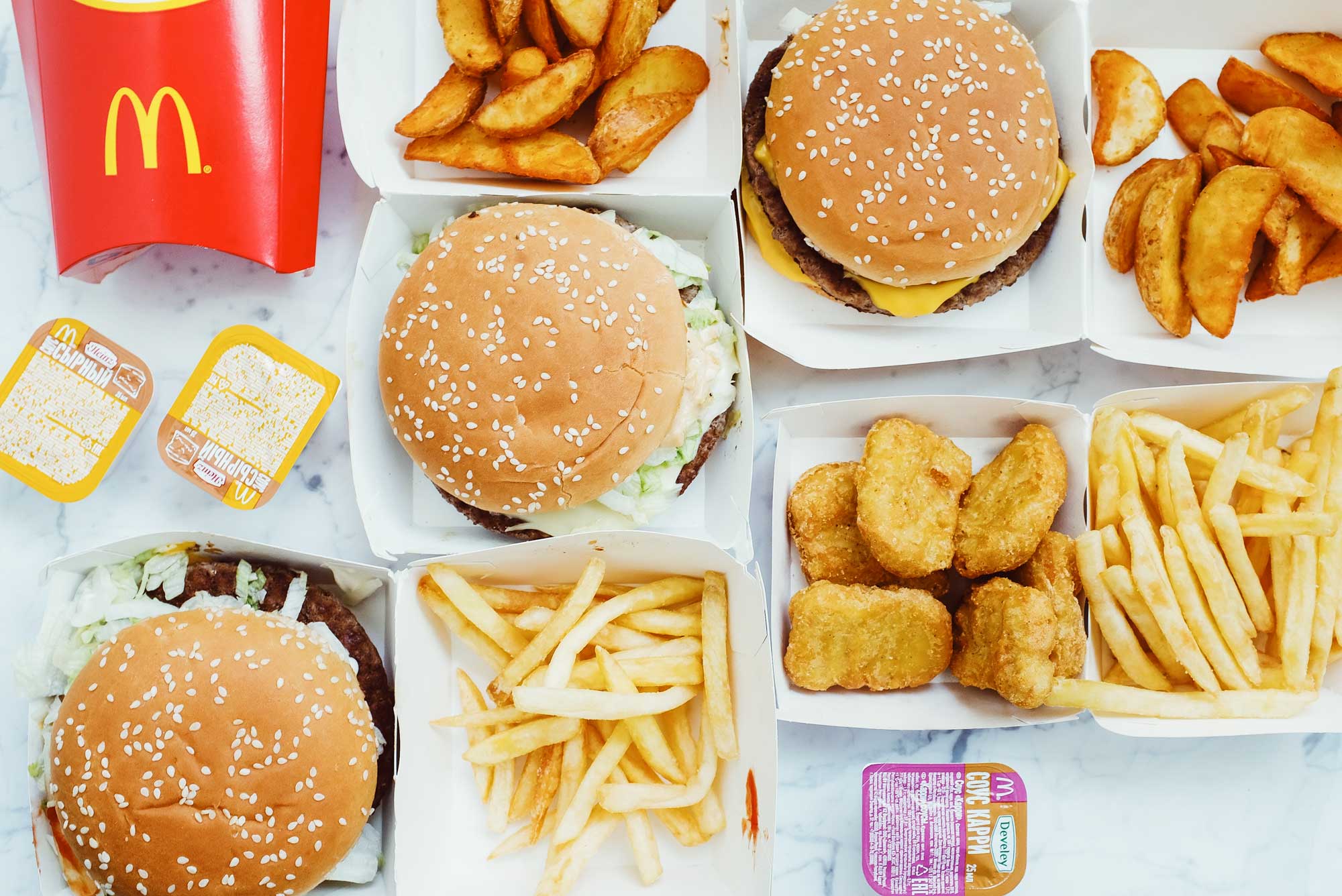Nutrition is important. It’s one of the most talked-about topics on the planet.
So why do many of us have poor nutrition, and what can bad nutrition cause?
Causes of Poor Nutrition
There are many reasons why someone’s nutrition may be less than ideal.
The reasons can be complex, and not all of them are within that person’s control. Sometimes more than one factor is at play for an individual or a family.
Some of the main causes of poor nutrition in today’s world include:
Inadequate Education on Nutrition
Maybe we just don’t know any better.
Dietary habits begin to form at the earliest ages and can last a lifetime, so understanding basic nutrition concepts is a crucial thing for children to learn. However, inadequate time and resources are put into nutrition education in US schools. (1)
As adults, we are constantly bombarded with confusing, conflicting, and often misleading information about nutrition.
It takes little more than access to the internet and self-proclaimed expertise for opportunists to push the latest diet trend, promising impossible results. So even those who want to educate themselves may have trouble wading through all the noise to find accurate information.
Societal Reasons
Society and culture play enormous roles in what we eat.
The typical “western diet” is pretty much universally agreed to be less healthy than more “traditional” diets. Part of the issue is that this eating pattern initially came about due to growing affluence. Foods that were previously only accessible to the wealthy like large amounts of costly meats, luxurious fats, and refined grain and sugar products became available to the masses as some societies became more affluent on the whole.
We are now starting to see this dietary shift in more and more parts of the world as countries develop, and rising rates of obesity and non-communicable diseases to go with it (2). Likewise, immigrants from countries with more “traditional” diets often become prone to the same weight problems as those born in their adopted developed country once they assimilate to a more typically “western” eating pattern (3).
Interestingly, we are now starting to witness another shift in some parts of the world where healthier foods have become more expensive and less equally accessible, writing a new narrative of socioeconomic implications on nutrition and health.
Many modern societies place a high value on work ethic and productivity, which doesn’t leave much time for seeking out and preparing healthy foods.
We want things that are quick and convenient so that we have more time for work and the many other activities that individuals and families tend to juggle. This has can lead to poor nutrition because many of those quick, convenient foods are also unhealthy.
Food is a social aspect of many cultures, and enjoying a special meal together is part of many family, community, and societal traditions.
Often those special meals or treats are not the healthiest – think about the holiday season and how for at least a month, everywhere you turn there is a plate of cookies or a bowl of eggnog. These traditions are important and can certainly fit within a healthy lifestyle, but it’s very easy to get carried away.
Bad Diet Choices
Let’s face it; eating healthy is difficult.
Aside from the societal and lifestyle reasons for not always making the best food choices, there is a strong psychological component as well. As humans, we have a complex emotional relationship with food and it is intricately entwined with our mental health.
We can derive great comfort from food, or it can be a source of guilt or stress.
Poor food choices can affect our mental health, which can then in turn lead to more poor food choices.
Even though we may know exactly what we should be eating to have the healthiest of diets, it’s not always so easy to do in real life. Even those of us who have devoted our academic and professional careers to the study of nutrition struggle with the same everyday realities as everyone else. Unhealthy foods taste good, they bring us joy, and they’re often easy and convenient.
Poverty
Good nutrition is a privilege. It shouldn’t be, but it is.
Around the world, 144 million children under 5 years old were stunted (chronically malnourished) in 2019. That is 21.3 percent of the world’s children under 5.
Likewise, 47 million (6.9%) were acutely malnourished and 38 million (5.6%) were overweight. (4) All three of these burdens fall most heavily on low- and middle-income countries, but they exist everywhere.
Food insecurity, along with other factors are part of a complex relationship between poverty, malnutrition, disease, and other negative outcomes. (5)
In the United States, 11.1% of households (or 14.3 million) were food insecure at some point during 2018, according to the USDA. (6) 37.2 million people lived in those households that year.
Lack of Access
Some of us can’t even access healthy foods.
A food desert is an area where residents lack access to healthy foods. (7)
Criteria used to define them vary, but they are typically low-income areas where supermarkets that sell foods like fresh fruits, vegetables, and whole grains simply don’t exist near enough for people to get to.
They may be stuck relying on convenience stores that primarily offer energy-dense, nutrient-poor processed foods. In the U.S., urban areas with higher levels of poverty and high-percentage minority populations are more likely to be food deserts according to the USDA. (8)
Medications or Conditions That Interfere with Nutrient Absorption
It’s not always up to us.
There are certain conditions, usually of the gastrointestinal system, that lead to malabsorption of various nutrients.
One common symptom of undiagnosed Celiac disease, for example, is anemia because the intestinal inflammation associated with the disease is preventing iron absorption.
Inflammatory bowel diseases like Crohn’s disease and ulcerative colitis can also lead to malabsorption of a wide variety of nutrients. And sometimes the cure is a problem as well.
Patients may be put on restrictive diets as a treatment for these conditions, which can result in inadequate intake of many nutrients and lead to deficiencies.
Still, other illnesses, such as some cancers, may cause the body to require more nutrients while medications to treat the illness have side effects like poor appetite, causing an ever-growing gap between what a person eats and what they need.
Certain medications can interact with specific nutrients or interfere with their absorption as well. For example, warfarin, a commonly-prescribed blood thinner, interacts with vitamin K, leading many patients to consume fewer green leafy vegetables and other healthy foods that contain vitamin K. Chronic use of proton pump inhibitors for gastroesophageal reflux can interfere with absorption of vitamin B12, which involves a series of steps that require gastric acid to initiate.
Dealing with diet restrictions due to an illness or medication can be frustrating and can lead to inadvertent nutrient deficiencies. In these cases, it’s advisable to work closely with your healthcare team to help prevent any negative consequences.
Age
Things change.
Nutritional status sometimes declines with age. The reasons for this might be financial, as many older adults are on a fixed or limited income.
As we age, our abilities to do most of our normal daily activities slowly decline. That includes things like grocery shopping and cooking. Older adults may gravitate toward more convenient foods, which are often less healthy.
There may be physiological reasons as well. Taste buds change with age, often leading older adults to add more salt, sugar, or fat to foods to experience the same flavor.
Conditions Associated with Poor Nutrition
The consequences of poor nutrition are many and wide-ranging. Here are some examples of what a bad diet can lead to.
Lack of Energy
We get energy from what we eat. We store a little bit for a rainy day in the form of body fat, but we primarily get the energy to perform day-to-day activities from the food we eat each day.
It makes sense then, that not eating enough of the right foods can lead to feeling tired or sluggish. But taking in enough energy in the form of carbohydrates and fat isn’t enough. We need vitamins and minerals to help us utilize that energy.
Deficiencies in several different micronutrients are associated with mental or physical fatigue. (9) This means that consuming an energy-dense, nutrient-poor diet may lead to tiredness or lethargy while consuming a healthy, balanced, nutrient-rich diet should help you to feel energized.
Poor Academic Performance or Productivity
Deficiencies in certain micronutrients, especially those that lead to anemia like iron, vitamin B12, and folate, can have negative effects on academic performance in children and on work productivity in adults. (10)
Brittle, Dry Hair/Skin
Not getting enough of various vitamins and minerals can have damaging effects on our hair, our skin, and our nails. Once again, eating a healthy, balanced, nutrient-rich diet is key for having glowing skin, shiny hair, and strong nails.
Aside from vitamins and minerals, essential fatty acid deficiency can cause dry, scaly skin and hair loss. Most Americans get plenty of omega-6 fatty acids but many could stand to get more omega-3s. The best source of Omega-3 fatty acids is oily fish, but they are also found in flaxseed and walnuts.
Poor Dental Health
It’s no secret that diets high in simple sugars can damage your teeth. You may also know that the mineral fluoride is protective – you may get a fluoride rinse at the dentist every year or your water supply may even be treated with it. But did you know that other vitamins and minerals play their own roles in dental health? (11)
Your teeth are bones, so the same nutrients that help form healthy bones also help form healthy teeth. A healthy, balanced diet that provides enough calcium, phosphorous, magnesium, and vitamin K can help promote strong bones and teeth.
Mental Health Suffers
Nutrition and mental health are closely linked. People with poor overall diet quality around the world are more likely to suffer from common mental health disorders (12).
In general, studies have found that the typical “western-style” energy-dense, nutrient-poor type diets are associated with poor mental health, while diets high in fruits, vegetables, fish, and whole grains can help maintain good mental health or even improve it.
Weak Immune System
Nutrition plays a key role in immunity. Specific vitamins and minerals such as vitamins A, C, D, E, and Zinc contribute to a strong immune system.
More generally, common problems related to an overall poor diet like obesity, chronic diseases, and malnutrition can all limit the body’s ability to fight off acute infections. Additionally, since a large portion of the body’s immune cells resides in the gut, maintaining good gut health through a healthy diet is important for immunity as well. (13)
Overweight and Obesity
42.4% of adults in the U.S. were classified as obese in 2017-2018. (14) Diet is unquestionably a major contributing factor to being overweight and obesity.
Diets high in processed foods, refined carbohydrates, and other energy-dense, nutrient-poor foods are likely to lead to weight gain, especially when combined with physical inactivity and chronic stress.
Diabetes
While diet isn’t a direct cause of diabetes, it can indirectly lead to increased risk.
Contrary to popular belief, eating sugar doesn’t cause diabetes. Type-1 diabetes is an autoimmune disorder, while major risk factors for type-2 include genetics and obesity.
A poor diet can, of course, be a major lifestyle contributor to obesity. Diets high in refined carbohydrates like sugar can certainly lead to weight gain. Weight gain that results in obesity can increase the risk of type-2 diabetes.
Increased Risk of Heart Disease and Stroke
Unhealthy dietary patterns are associated with a greater risk of developing diseases of the cardiovascular system such as high blood pressure and atherosclerosis which can lead to heart attack and stroke.
High intakes of processed foods, sodium, added sugars, saturated and trans fats, and low intake of fruits, vegetables, whole grains, legumes, fish, and nuts are associated with increased risk of these potentially life-threatening conditions. (15)
Cancer
Obesity is a known risk factor for certain types of cancers, including renal, endometrial, esophageal, and pancreatic, among others. (16) A poor diet can be a contributing factor for obesity, which in turn can increase the risk of these cancers. Adhering to a diet higher in fruits, vegetables, and whole grains has also been associated with a lower risk of several cancers, especially colorectal. (17)
How to Improve Your Nutrition Today
There are some important changes you can make to help you avoid the consequences of poor nutrition. Even if you aren’t ready to completely overhaul your diet, you can focus on limiting or increasing certain key food groups as a place to start.
Foods to Avoid or Limit:
- Processed foods
- Refined grains
- Added sugar
- Red meat and other high-fat animal products (except fish)
Foods to Start Eating More Of:
- Fruits and vegetables
- Whole grains
- Legumes, seeds, and nuts
- Fish
- Lean poultry
- Healthy fats such as olive oil and avocado
Tips for Improving Your Nutrition:
- Make one change to your diet at a time and allow for a period of adjustment.
- Change can be gradual — you don’t have to give up your favorite unhealthy food cold-turkey. You can start by using it less and less often until it becomes an occasional treat.
- Choose changes you can sustain long-term, that you can make fit into your lifestyle without too much disruption.
- Be kind to yourself and understand that eating healthier is a process.
- Always discuss diet changes with your primary care provider, especially if you have a chronic condition or take medication.
- If cost or access to healthy foods are barriers, seek out local resources in your area that aim to help navigate these challenges.
- If you are fortunate enough to be able to afford and access all the healthy foods your heart desires, consider getting involved with initiatives to combat food insecurity in your area. Also, check-in with Grandma or your older neighbors.
Conclusion
The reasons people don’t consume a healthy diet are varied and can be complex. The consequences of poor nutrition are numerous and in some cases, rather serious. Some simple changes, like avoiding processed foods and eating more fruits and vegetables can help get your nutrition on track today.
[expand title=”Sources“]
- https://www.upi.com/Health_News/2019/12/05/CDC-Schools-arent-doing-enough-to-teach-kids-about-nutrition/9491574879196/
- https://www.who.int/nutrition/double-burden-malnutrition/en/
- https://journals.openedition.org/faceaface/1023
- https://www.who.int/news-room/detail/31-03-2020-unicef-who-wb-jme-group-new-data
- https://www.ncbi.nlm.nih.gov/books/NBK361900/figure/part2.ch11.sec1.fig1/
- https://www.ers.usda.gov/topics/food-nutrition-assistance/food-security-in-the-us/key-statistics-graphics.aspx
- https://www.britannica.com/topic/food-desert#ref302534
- https://www.ers.usda.gov/webdocs/publications/45014/30940_err140.pdf
- https://www.ncbi.nlm.nih.gov/pmc/articles/PMC7019700/
- https://www.who.int/nutrition/topics/ida/en/
- https://pubmed.ncbi.nlm.nih.gov/27589794/
- https://www.ncbi.nlm.nih.gov/pmc/articles/PMC3534562/
- https://www.ncbi.nlm.nih.gov/pmc/articles/PMC6723551/
- https://www.cdc.gov/nchs/products/databriefs/db360.htm
- https://www.ncbi.nlm.nih.gov/pmc/articles/PMC6320919/
- https://pubmed.ncbi.nlm.nih.gov/27909899/
- https://pubmed.ncbi.nlm.nih.gov/28954418/








